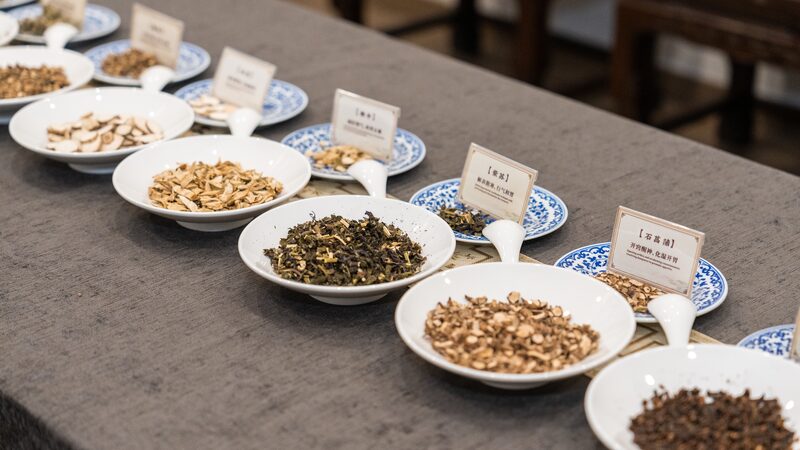In a vibrant health bar operated by Tong Ren Tang, a renowned traditional Chinese medicine (TCM) manufacturer founded in the 17th century, young college student Feng queues up for a latte infused with goji berries—herbs celebrated for their liver-protecting and eyesight-enhancing benefits.
Popular choices among the youth include boba tea with ginseng and Americano with mangosteen, blending ancient wisdom with contemporary tastes. \"I like this new kind of consumption because it's both healthy and convenient,\" Feng shares.
Historically, health and wellness were domains primarily focused on by the middle-aged and elderly. However, a surge of young people is now adopting this wholesome lifestyle, creating a fresh trend nationwide.
Zheng Wanying, a Beijing securities company employee, starts her day with homemade tea mixed with jujube, longan, and rose petals. In the evenings, she unwinds with a foot bath featuring vinegar, ginger, and Sichuan pepper. \"The flower and fruit tea promotes blood circulation and skin whitening, while the foot bath alleviates coldness and reduces swelling,\" she explains. At 30, Zheng believes these practices help maintain her youthful appearance.
In Guangxi Zhuang Autonomous Region, traditional Chinese massages have become a popular pastime among students near Guangxi University. Similarly, Zhejiang Provincial Hospital of Chinese Medicine has launched evening massage services to cater to young office workers experiencing shoulder and neck pain from long hours at their desks.
A recent survey by China Youth Daily revealed that 79.9% of 1,000 young respondents are familiar with traditional Chinese medical philosophy and therapies, with 51.9% learning about them through social media platforms.
Fan Su, a physician at Wangjing Hospital under the China Academy of Chinese Medical Sciences, observes a rising awareness of TCM among the youth. \"Many young people turn to TCM when they feel unwell but don’t meet the diagnostic criteria of Western medicine,\" she notes.
Li Zhilin, an employee at an internet startup, embraces the TCM philosophy of preventing illness before it occurs. After experiencing excessive stress, Li adopted a regimen combining breathing exercises and acupuncture at a health bar, which helped him regain a peaceful mindset and increased his work efficiency. \"Good health is essential for fully engaging in work and life,\" he asserts.
Beyond personal use, some young individuals are diving deeper into TCM knowledge. Shandong University of Traditional Chinese Medicine's learning programs have attracted many young enthusiasts like Jiang Fei, who developed a keen interest in herbal theories after recovering from an illness with their help.
Liu Dong, owner of a Beijing health bar, attributes the young generation's fascination with TCM to supportive government policies and the proven efficacy of herbs in treating ailments like COVID-19. In 2022, the State Council included the development of TCM in its 14th Five-Year Plan (2021-2025), aiming to establish a high-quality TCM service system.
Furthermore, primary and middle schools across China are incorporating youth-friendly TCM courses and activities, introducing children and teenagers to traditional medicinal culture early on.
The enthusiasm of young people for health and wellness is revitalizing time-honored herbs, blending ancient practices with modern lifestyles. \"The age-old herbs are keeping us healthy in new ways,\" Feng concludes. \"This is the charm of TCM.\"
Reference(s):
Chinese youth's enthusiasm for health spices up herbal medicine
cgtn.com




